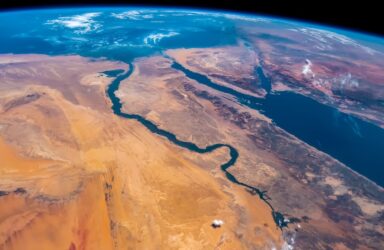Review – International Interventions in Local Conflicts
The bloody and protracted small wars of the last 20 years seem to be the current norm in IR, and may well be so for the foreseeable future. It is into this context that we can place Uzi Rabi’s edited collection.
Shared Identity: New Threats for Old Solutions
Indigenous identity is problematic because it is grounded on the politics of difference, especially on the existence of a prior identity. This essay argues that indigenous security implies the identification and security of the vulnerable shared identity from the dominant one, which then results in the creation of indigenous peoples as a threat.
R2P: Seeking Perfection in an Imperfect World
While the development of R2P as a concept has been the preserve of international relations theoreticians (albeit ones with large amounts of practical experience), its implementation rests on the practitioners of the day. And these practitioners deal in the world of realpolitik with all of its inconsistencies, relativities and competing national interests.
Lebanon’s Reformed Electoral Law – Is the Cup Really “half full”?
Following a provision of the Doha agreement, signed by Lebanese political leaders to put an end to the May 2008 crisis, the Lebanese parliament discussed the country’s Parliamentary Electoral Draft Law and voted for reform on September 29th, 2008. But many of the proposals made by the National Commission were rejected, leading Minister of the Interior Ziyad Baroud to qualify it as “a cup half full”. But is this too optimistic?
Contractors in the “War on Terror”: Enabling Global Military Deployment
What has begun as the “War on Terror” and is now a series of “overseas contingency operations” could in fact only go on in the global fashion that it did for almost ten years now because of the services provided by several hundred thousand contractors. In short, private contractors serve as enablers of this decade-old war, much like they have become enablers of most major Western militaries.
Premature Adulation in Sudan
On July 9th diplomats celebrated the birth of Africa’s newest country, South Sudan, like over-stimulated toddlers at a party. The media followed suit, with trivial and sometimes patronising stories about the new national anthem and flag, and the admittedly strange plan to create cities in the shapes of African animals. Sadly, those involved should have focused on the agenda items they failed to address before sending out the independence day invitations.
The Politics of Famine in the Horn of Africa
It is time the U.S. and other governments took a more nuanced approach to politics in the Horn of Africa and followed the lead of international aid agencies on the ground in dealing with local leaders and communities, rather than seeking to impose a top-down central government. The solution to famine in East Africa lies in employment-generating development. It will not offer an instant fix, but it’s a start.
Russia, China, ASEAN, and Asian Security
Southeast Asia and the South China Sea are now clearly major theaters of rivalry between the US and China, and once again, a cockpit of major international rivalries. ASEAN’s members are squarely in the middle of this rivalry. Meanwhile Russia is trying to run a bluff on China, which will probably only provoke Chinese and Asian mistrust despite the mutual professions of an identity of interest with China.
The Role of Foreign Actors in the Development of Democracy in the Middle East-North Africa
Foreign actors have played a significant role in the development of democracy in the region. Admittedly, however, it has not always been constructive. Given the ongoing political unrest in the region, there is an opportunity for them to play a far more constructive role in the development of democracy than they have in the past.
Egypt’s Choices on the Grand Ethiopian Renaissance Dam
Egypt’s water security depends on balancing domestic innovation with diplomacy that transforms the Nile from a source of contention into a catalyst for shared prosperity.




